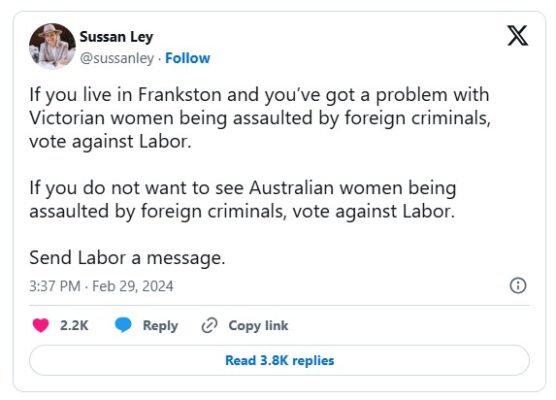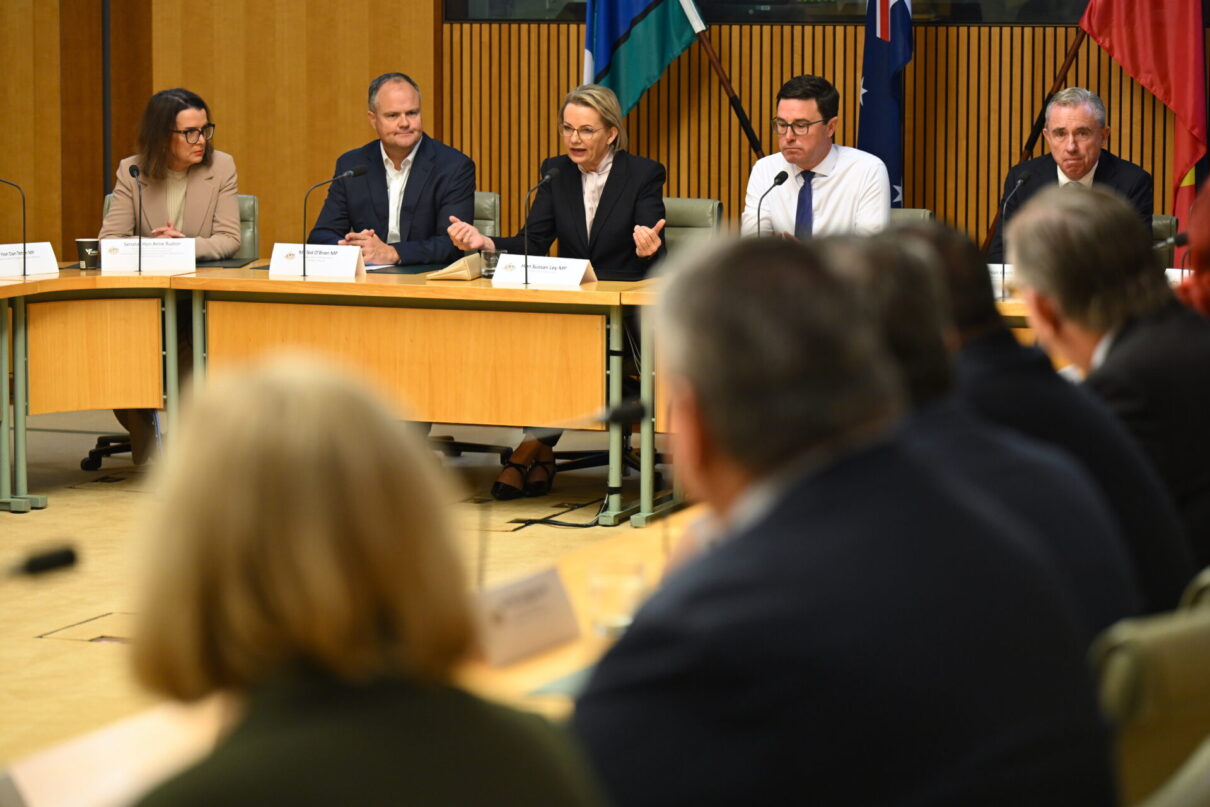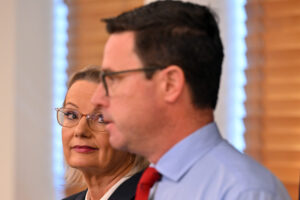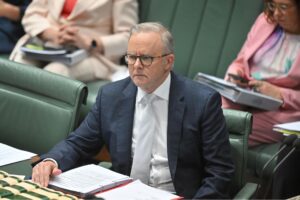This week, press gallery doyenne Michelle Grattan wrote about political and news cycles and how the two work.
Grattan, who among her many talents holds an institutional memory that makes every politician quake, gave a lesson in the intersection between media and politics by focussing on the lack of political reaction to two pieces of news.
One, Home Affairs Minister Tony Burke’s interview on Sky News last Sunday, where he admitted that no one from the NZYQ cohort of immigration detainees, released by a High Court decision, had reached the threshold of laws designed to enable the government to re-detain them.
For that we need a bit of context – for years Australia had detained asylum seekers, refugees and migrants who had their visas either cancelled or refused, but couldn’t be deported because they were stateless, would face death or serious harm in their birth countries, or their countries refused to co-operate with Australia’s deportation.
Most of the people caught up in this had either committed a crime or been charged with a crime. Some have no convictions.
But unlike when an Australian-born citizen commits a crime, is given a custodial sentence and then released back into the community at the end of their sentence to resume life, Australia wanted these people out.
When they ran into a deportation boundary, the workaround was to lock them up in immigration detention.
Unlike a sentence handed down by a court, there is no end date to this sort of detention. It was called “indefinite” and successive governments just sort of swept it under the rug without trying to find a humanitarian solution.
Then a case was taken to the High Court, which found that indefinite detention breached the separation of powers and meant that ministers, not courts, were imposing punishments and ordered anyone who met the same criteria as NZYQ be released.
Eventually, the Coalition turned that into the issue of a century, with Peter Dutton and his loyal acolytes – including Sussan Ley, Dan Tehan and James Paterson – accusing the government of letting “hardened criminals” into Australian society.
This ended with a very quick suite of law changes (changed again after the High Court kiboshed the first attempt) that gave authorities the legal right to monitor the cohort, as well as re-detain them – as long as they met the legal threshold to do so.

Civil liberties are pesky though. With the High Court ruling that the government did not have the power to treat people differently under the law, none of the cohort has been re-detained.
Grattan pointed out that this issue, which saw Anthony Albanese move around ministers and struggle to find authority after the rabid attacks by the Coalition, aided at times by a willing and abetting media, barely made a ripple.
It was reported – mostly with the same disapproving tone that the government had “failed” (upholding the legal rights of people is just so vexing!) – but as Grattan pointed out, “attracted limited attention”.
The Coalition, which is still trying to work out how it lost migrants and multicultural Australians at the last election (turns out, if you dog whistle really, really loudly people hear it) barely raised its collective head .
The issue that dominated Parliament for the better part of six months, and at one point was going to bring down the government, still exists – and yet barely a blip from the same people who not so long ago made the issue their entire identity.
And with the lack of generated political faux rage, the story came and went.
Continuing her lesson on how these cycles work, Grattan also touched on the successful case the Executive Council of Australian Jewry brought against Wissam Haddad, under 18C of the Racial Discrimination Act.
Haddad was found to have breached 18C and was ordered to take down online lectures and speeches identified by the court as breaching the act, although the court also found that political criticism of the state of Israel and its military was not inherently antisemitic.
But despite most of the Coalition and other right-wing figures once making destroying 18C their sole purpose and personality, the response was to applaud the outcome or avoid comment completely.
The media covered it, but from the point of the view of the victory of the case brought by the ECJA (with many burying Justice Angus Stewart’s ruling on criticism of Israel). But again, without any faux rage to feed the media beast, that story too came and went.
Now, that is not to say that neither issue is a story – of course they are, and should be covered. But the lack of saturation, when in the (not so distant) past, both had the potential to become the No.1 political issue in the country, speaks to one of the biggest issues within our political culture.
Stories don’t just organically become the equivalent of a “firenado”. They are given plenty of fuel and help from politicians willing to eke out any mileage they can to burn down a political opponent, and a media all too willing to provide them a platform.
And it always seems to become a firenado when it’s fuelled by right-wing issues.
That doesn’t serve anyone. Certainly not the people politicians are supposed to serve.
Grattan gave the examples to remind readers that the “political context can be very relevant to whether the embers of an old issue re-spark into something major”.
It also serves as a reminder to those platforming culture wars, that they don’t have to. You can cover issues on their merit. You can allow people to judge for themselves what is an issue for them or not, without fanning the flames of damaging debates that stretch the truth and throw vulnerable communities under the bus.
The Coalition hasn’t changed. It’s made up of the same people who sparked, encouraged and actively partook in some of the most damaging “debates” of the past decade.
There has been no change of heart – the party has just been taken to the edge of extinction by voters and its members have finally worked out they might need to keep their mouths shut.
It shouldn’t take that to stop issues being whipped beyond recognition, because it serves a very small, privileged cohort, “politically”.
Between the Lines Newsletter
The biggest stories and the best analysis from the team at the Australia Institute, delivered to your inbox every fortnight.
You might also like
Gender parity closer after federal election but “sufficiently assertive” Liberal women are still outnumbered two to one
Now that the dust has settled on the 2025 federal election, what does it mean for the representation of women in Australian parliaments? In short, there has been a significant improvement at the national level. When we last wrote on this topic, the Australian Senate was majority female but only 40% of House of Representatives
Does the government understand its own hate laws?
The government passed new gun control and hate speech legislation in a special parliamentary sitting, but what impact will they have on Australian democracy?
What conservatives do better | Between the Lines
The Wrap with Amy Remeikis If there is one thing you can bank on, it is that conservative governments know how to use power. They never shy away from it. If a conservative government wants to change something, it will, and it won’t worry about who it is annoying, or the pushback, or whether or




